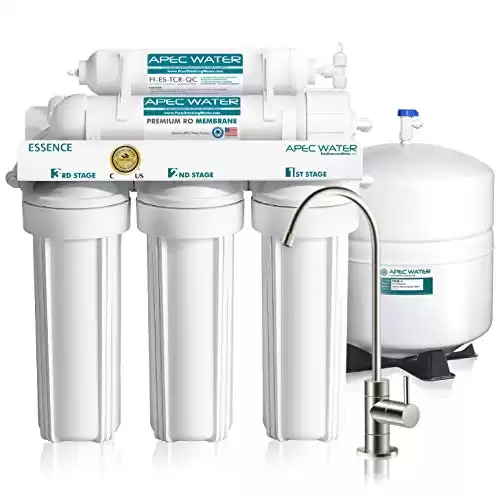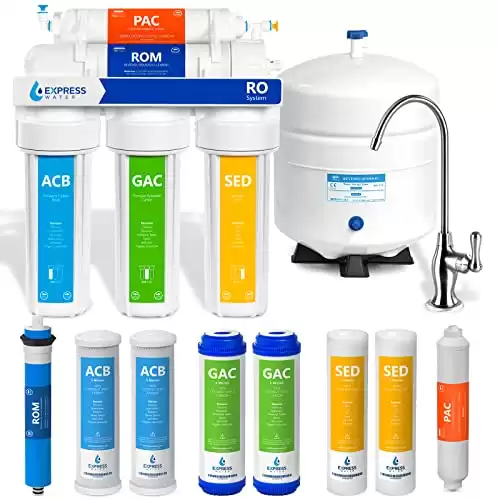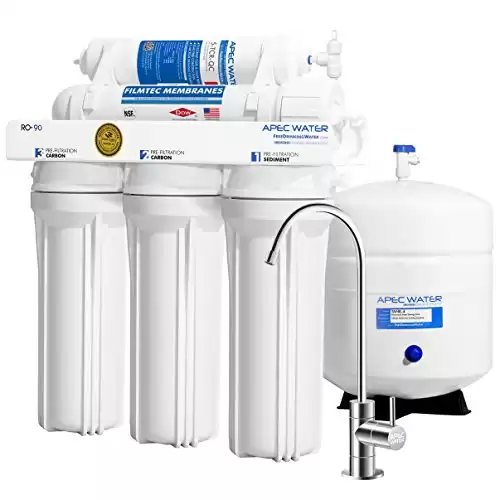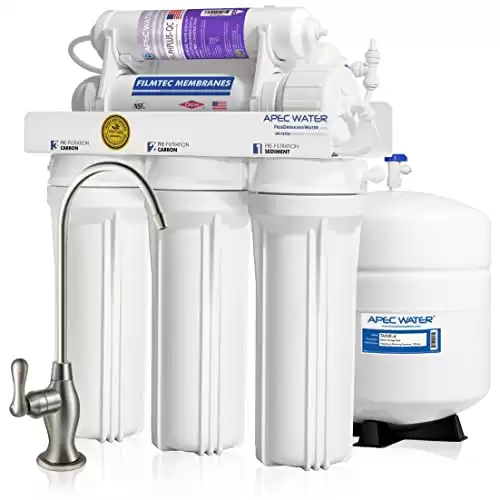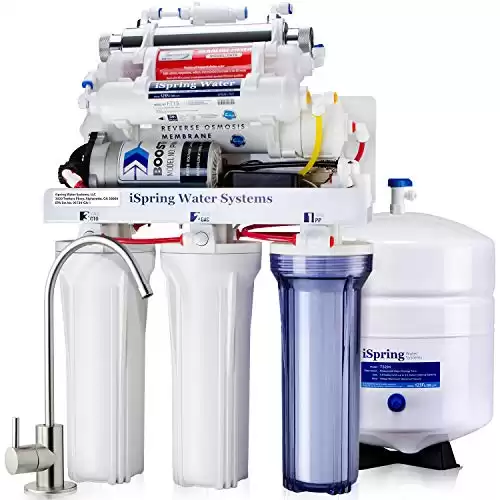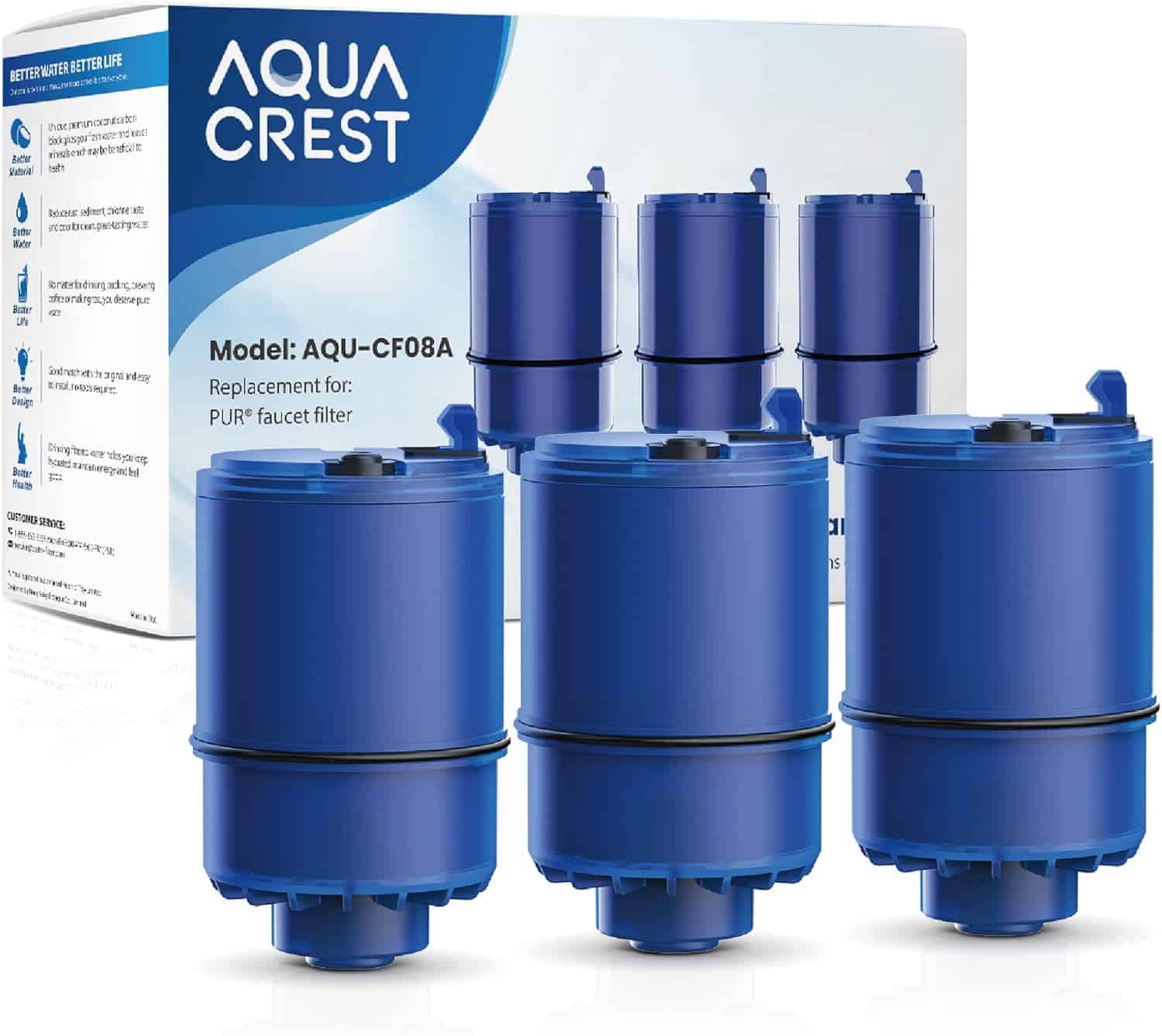How Under Sink Water Filters Can Improve
Your Family’s Health and Safety
Clean and safe drinking water is essential for maintaining good health and well-being. While tap water is generally treated by municipal authorities, it can still contain contaminants that pose risks to our health. That’s where under sink water filters come into play. These innovative devices offer an effective solution to purify the water directly at the point of use, providing numerous benefits for your family’s health and safety. In this blog, we will explore the advantages of under sink water filters and how they can enhance the quality of your drinking water.
Under Sink Water Filters Purpose
1. Removal of Harmful Contaminants
Tap water can contain various impurities, including bacteria, viruses, chemicals, heavy metals, pesticides, and chlorine. Under sink water filters are designed to target and remove these contaminants, ensuring that the water you drink is clean and safe. Advanced filtration systems can eliminate up to 99% of harmful substances, providing you with peace of mind about the water your family consumes daily.
2. Enhanced Taste and Odor
Chlorine is commonly used to disinfect municipal water supplies, but it can give water an unpleasant taste and odor. Under sink filters equipped with activated carbon filters effectively remove chlorine, along with its associated taste and smell. This improves the overall taste and makes drinking water more enjoyable, encouraging everyone in your family to consume an adequate amount of water daily.
3. Protection against Microorganisms
Bacteria, viruses, and parasites can potentially be present in tap water, posing health risks, especially for children, the elderly, and individuals with weakened immune systems. Under sink filters equipped with microfiltration or ultraviolet (UV) sterilization systems act as a barrier against these microorganisms, ensuring the water you consume is free from harmful pathogens.
4. Cost-Effective Solution
Investing in an under sink water filter can be a cost-effective choice in the long run. Bottled water might seem convenient, but it can quickly become an expensive habit, not to mention the negative environmental impact caused by plastic waste. By installing an under sink filter, you have a continuous supply of purified water without the need to purchase and dispose of plastic bottles.
5. Convenience and Accessibility
Under sink water filters offer convenience and accessibility to clean drinking water right at your kitchen sink. Once installed, they operate silently and don’t take up valuable counter space. With a separate faucet or a diverter valve, you can easily switch between filtered and unfiltered water as per your needs. This accessibility encourages family members to drink more water, promoting hydration and overall well-being.
6. Eco-Friendly Solution
In addition to cost savings, under sink water filters contribute to a more sustainable lifestyle. By reducing the consumption of bottled water, you significantly decrease plastic waste and help protect the environment. It’s a small change that can make a big difference in conserving natural resources and reducing your carbon footprint.
Types of Under Sink Water Filters
When it comes to under sink water filters, there are several different types available, each with its unique filtration methods. Here are some of the common types of under sink filters:
1. Carbon Filters: Carbon filters are one of the most popular types of under sink filters. They use activated carbon, which is highly effective at removing chlorine, volatile organic compounds (VOCs), bad tastes, and odors from the water. Carbon filters can come in different forms, such as granular activated carbon (GAC) filters or carbon block filters.
2. Reverse Osmosis (RO) Systems: Reverse osmosis filters use a multi-stage filtration process to remove a wide range of contaminants from the water. They work by forcing water through a semi-permeable membrane that removes impurities such as bacteria, viruses, heavy metals, fluoride, nitrates, and more. RO systems are known for their thorough filtration capabilities.
3. Ceramic Filters: Ceramic filters are made of porous ceramic material that effectively removes bacteria, cysts, sediments, and some chemicals from the water. These filters have small pores that allow water to pass through while trapping contaminants. Ceramic filters often work in combination with activated carbon filters to provide comprehensive filtration.
4. UV Filters: Ultraviolet (UV) filters use UV light to disinfect water by neutralizing bacteria, viruses, and other microorganisms. They are often used in conjunction with other filtration methods to provide an additional layer of protection against harmful pathogens. UV filters do not remove chemicals or heavy metals, so they are commonly used alongside carbon or RO filters.
5. Alkaline Filters: Alkaline filters are designed to raise the pH of water, making it more alkaline. These filters typically use a combination of minerals, such as calcium, magnesium, and potassium, to increase the pH and provide a more balanced and less acidic drinking water.
6. Multi-Stage Filters: Multi-stage filters combine different filtration methods in a single system to provide comprehensive water purification. These filters often include a combination of carbon filters, sediment filters, RO membranes, and other technologies to effectively remove a wide range of contaminants from the water.
It’s important to note that the specific types of filters available may vary depending on the manufacturer and the model of the under sink filter system. When choosing an under sink filter, consider the quality of the filtration, the specific contaminants you want to target, and the maintenance requirements of the filter system.
Top 10 FAQs – Under Sink Water Filters
1. What is an under sink water filter?
An under sink water filter is a filtration system installed beneath your kitchen sink to purify the water directly at the point of use. It removes contaminants, chemicals, and impurities, ensuring clean and safe drinking water.
2. How does an under sink water filter work?
Under sink water filters use various filtration methods such as activated carbon, reverse osmosis, ceramic, or UV sterilization to remove contaminants from the water. The water passes through one or more filter stages, depending on the system, effectively removing impurities.
3. What contaminants can under sink water filters remove?
Under sink water filters can remove a wide range of contaminants, including chlorine, bacteria, viruses, heavy metals (such as lead and mercury), pesticides, herbicides, fluoride, volatile organic compounds (VOCs), and sediment.
4. How often do under sink filters need to be replaced?
The frequency of filter replacements depends on the type of filter and the water quality in your area. Carbon filters typically last 6-12 months, while RO membranes may last 2-3 years. It’s essential to follow the manufacturer’s guidelines for filter replacement to maintain optimal filtration performance.
5. Are under sink water filters difficult to install?
Under sink water filters can vary in terms of installation complexity. Some models may require professional installation, while others come with user-friendly installation kits and instructions for DIY setup. It’s recommended to read the product manual or seek professional assistance if needed.
6. Do under sink filters reduce water pressure?
Some under sink filters may slightly reduce water pressure due to the filtration process. However, many modern filter systems are designed to maintain adequate water flow, ensuring a consistent water pressure for regular use.
7. Can under sink filters remove beneficial minerals from water?
Certain types of under sink filters, such as reverse osmosis systems, can remove beneficial minerals along with contaminants. However, some systems offer remineralization stages to add essential minerals back into the filtered water, ensuring a balanced and healthy drinking water.
8. Are under sink water filters cost-effective?
Under sink water filters can be cost-effective compared to buying bottled water over time. Although the upfront cost of the filter system and replacement filters should be considered, it generally proves to be a more economical and sustainable solution in the long run.
9. Do under sink filters require maintenance?
Under sink filters require regular maintenance to ensure optimal performance. This typically involves filter replacement, periodic cleaning of filter components, and system sanitization. Refer to the manufacturer’s instructions for the specific maintenance requirements of your filter system.
10. Are under sink water filters suitable for all water sources?
Under sink water filters are generally effective for improving the quality of tap water. However, it’s essential to consider the specific contaminants present in your water source and choose a filter system that addresses those concerns. Some filters may require pre-filtration or additional treatment for well water or heavily contaminated water sources.
Remember that the answers provided here are general guidelines, and it’s crucial to refer to the manufacturer’s instructions and specifications for the specific under sink water filter system you choose.
Summary: Under the Sink Water Filters
Ensuring the health and safety of your family is a top priority, and providing them with clean and safe drinking water is an essential part of it. Under sink water filters offer an effective and convenient solution to remove harmful contaminants, improve taste and odor, and protect against microorganisms. With their cost-effectiveness and environmental benefits, under sink filters are a wise investment that enhances your family’s health and well-being while promoting sustainable living. Make the switch today and enjoy the benefits of pure and refreshing drinking water right at your fingertips.


